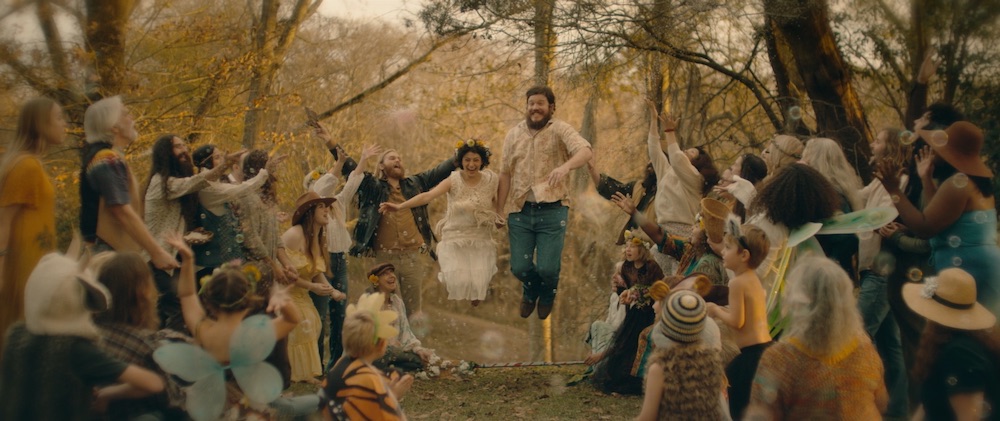
Photo courtesy: IFC Films
The new film Blaze is a biopic about the country-western singer/songwriter Blaze Foley. If you’ve never heard of him, don’t worry, most people haven’t. He’s the man behind the songs “Clay Pigeons,” and “If Only I Could Fly.” He’s also the subject of country singer Lucinda Williams’ song “Drunken Angel.” Here’s a video of Foley performing live:
Tragically, Foley was shot and killed in 1989, at the age of 39. Now, however, thanks to this new film, his life and music live on.
Ethan Hawke directed Blaze from a screenplay written by both himself and Foley’s former wife, Sybil Rosen. I talked with both Hawke and Rosen to find out what the writing process was like. Hawke claims it was a near miracle the film happened at all.
“I thought constantly it would never work,” says Hawke. “It’s not easy to get a movie made that stars someone you’ve never heard of about someone you’ve never heard of… it’s pretty hard to raise the money.” Lucky for us he did. The film is affecting and subtle. It currently has a Rotten Tomatoes score of 100% fresh.
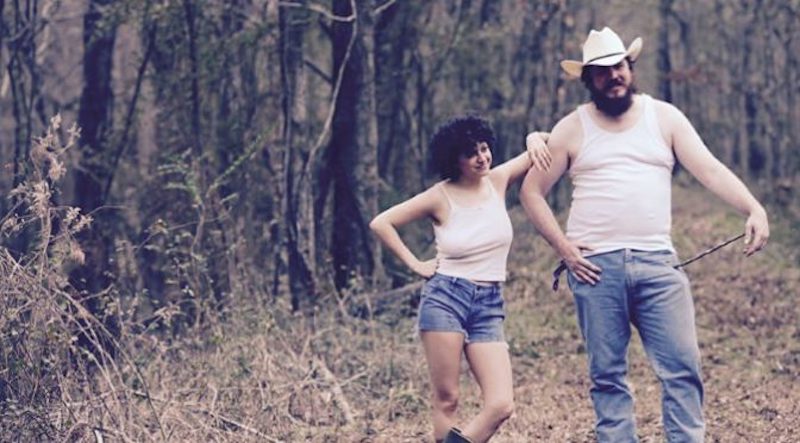
Photo courtesy: IFC Films
A native of Austin, Hawke loves country music and remembers bonding with his father over Willie Nelson when he was just a boy. “Country music,” says Hawke, “became a blanket, a source of happiness. It became a well of learning.”
Townes Van Zandt, Merle Haggard, Waylon Jennings were all artists Hawke followed as he got older. “You follow all these paths,” he says, “and then there’s this strange, secret ghost out in the graveyard named Blaze Foley.”
Foley’s songs are sweet yet haunting, full of love and also that particular melancholy unique to country music. The movie is not different. The fact Foley died so young only adds to his mystery and legend.
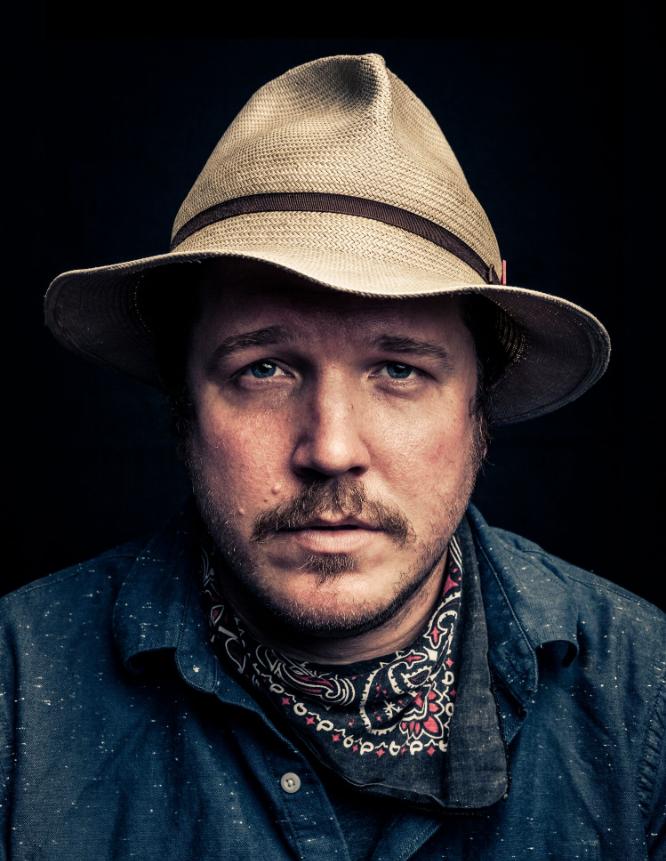
Photo courtesy: IFC Films
“So much of what Ethan wanted to explore with the movie was the artist’s path, the wellsprings of creativity – both dark and light,” says Rosen, whose memoir Living in the Woods in a Tree: Remembering Blaze Foley, provided much of the story for the screenplay.
Hawke was also inspired by his friendship with another little known country-western singer, Ben Dickey. He wanted Dickey to play Foley despite Dickey having no acting experience at all. Luckily, Dickey was somehow able to capture both the tenderness and self-destructive fireball that was Blaze Foley.
As Hawke was trying to put the pieces of the film together, Lewis Black, co-founder of the South by Southwest Festival, introduced him to Rosen over email. Both Hawke and his producer-wife, Ryan Hawke, each got their own copy of Rosen’s memoir and stayed up late reading and discussing the book.
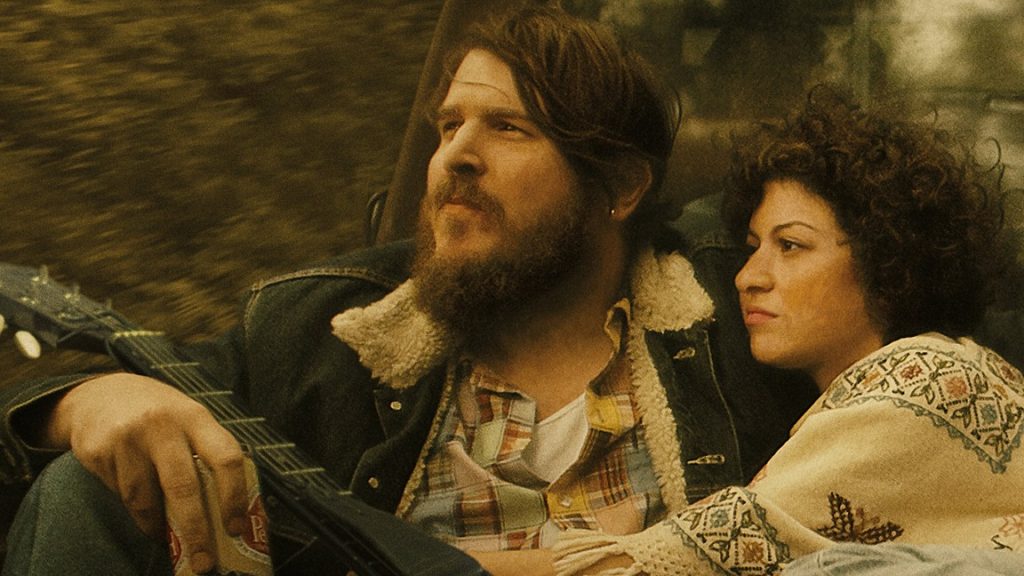
Photo courtesy: IFC Films
When Hawke asked if Rosen would be interested in writing a screenplay together, Rosen says her reaction was something like, “Are you freaking kidding me? I couldn’t imagine anything more promising!”
Hawke said they’d probably shoot the winter of 2017/18. “That was in June,” recounts Rosen, “he then called me at the end of August and said ‘I think we’re going to make the movie now.’ I developed vertigo.”
For a woman who once lived in a tree house, the affliction seemed metaphorical in nature. Rosen knew she was in for the emotional ride of her life. At this point, there wasn’t even a script. Slowly, but surely, however, the script came together.
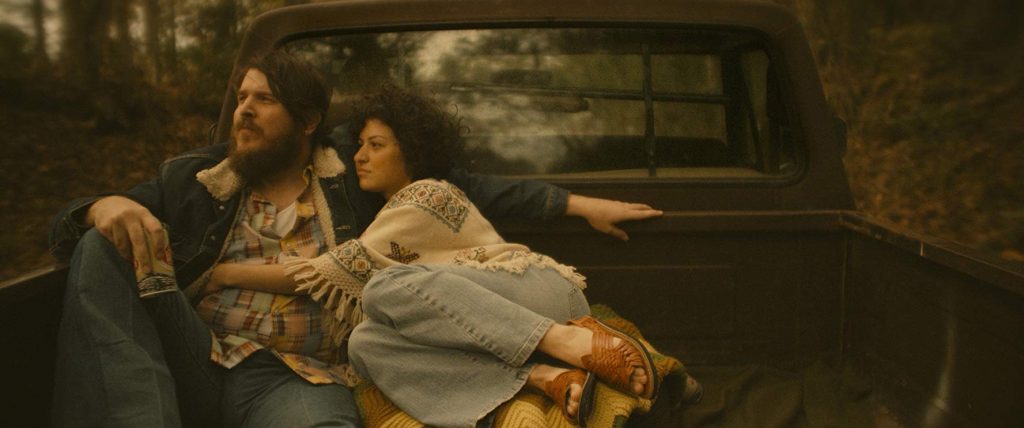
Photo courtesy: IFC Films
‘I had scenes from the tree house that I brought to the table,” says Rosen. “Ethan had the structure he was envisioning and monologues — so he stitched it all together and would send me a draft and I’d send him notes. So we worked like that, back and forth until we got to set at the end of November. Then everything changed.”
Rosen says that because Hawke has a theater background, he gave the actors space to improvise. “They were so primed. The script began to reshape itself – not so much structurally, because when you film a movie, it’s not linear anyway, there were just these currents that would well up, so we followed them.”
For Rosen, the experience was like no other. “There were a lot of realities to hold while we were making the film. Past, present future. Navigating my personal, private relationship with Blaze and watching these scenes unfold. It was a healing process that helped me let go of Blaze in a deeper way.”
But making Blaze was an emotional journey for Hawke as well.
“I could feel his depression off the music,” says Hawke. “The more I read about him, the more I was haunted and intrigued by him, especially by the ways in which I didn’t understand him. The night he was shot and killed, I was on the set of Dead Poets Societyso our lives were so different. My journey in the arts is so different. When I was younger and heard he died at 39, it didn’t seem that young. Now I’m like ‘Oh, Jesus!’”
In the film, Alia Shawkat (Arrested Development, Search Party) plays Rosen. “There’s a sturdiness to her. She’s like a millennial Sybil,” says Rosen.
The movie, partly because of Rosen’s involvement and partly due to Hawkes’ artistry, is one of the most authentic films I’ve ever seen. There are no false beats, forced emotions, clumsy dialogue or all-too convenient storylines. The film feels like a country-western song – a small little story with a whole lot of pain.
“I would love it to be true that great art doesn’t come from great suffering, and I don’t think it’s always true, but it’s often true,” says Rosen.
Blaze is currently playing in limited release.




1 Reply to "Ethan Hawke’s surprising emotional journey to make his new film <em>Blaze</em>"
Sandra Guyse May 25, 2020 (3:31 pm)
Excellent film. Touched me on a deep, emotional level. Kudos to Mr. Hawke, Ms. Rosen and the entire crew.